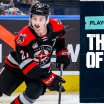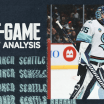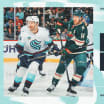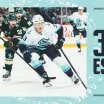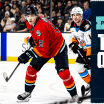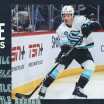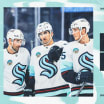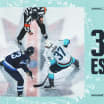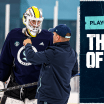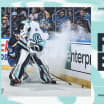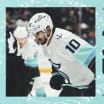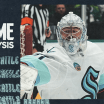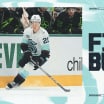Friendship backstories often come with an unexpected twist. Let's whistle hockey referees Bob Seller and Ben Savage for two minutes to explain.
"Ben and I have been working together for 10 years," said Sellers during a break between games at the late January Great Puckaroo Roundup played on Winthrop's feel-like-a-kid-again outdoor rink. "I think we have done 620 games together."
Stars in Stripes
As two unsung heroes of adult-league hockey, referees Bob Sellers and Ben Savage have logged 600-plus games together, plus thousands of smiles and laughs
Washington hockey referees enjoy outdoor tournament
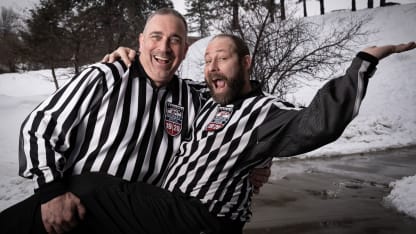
© NHL Seattle // Chris Mast
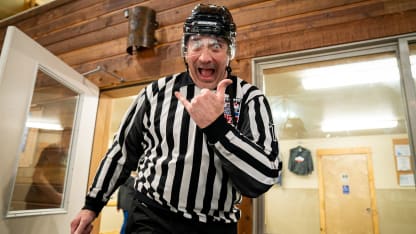
© NHL Seattle // Chris Mast
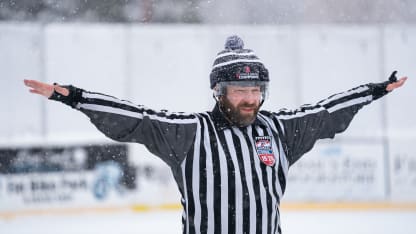
© NHL Seattle // Chris Mast



